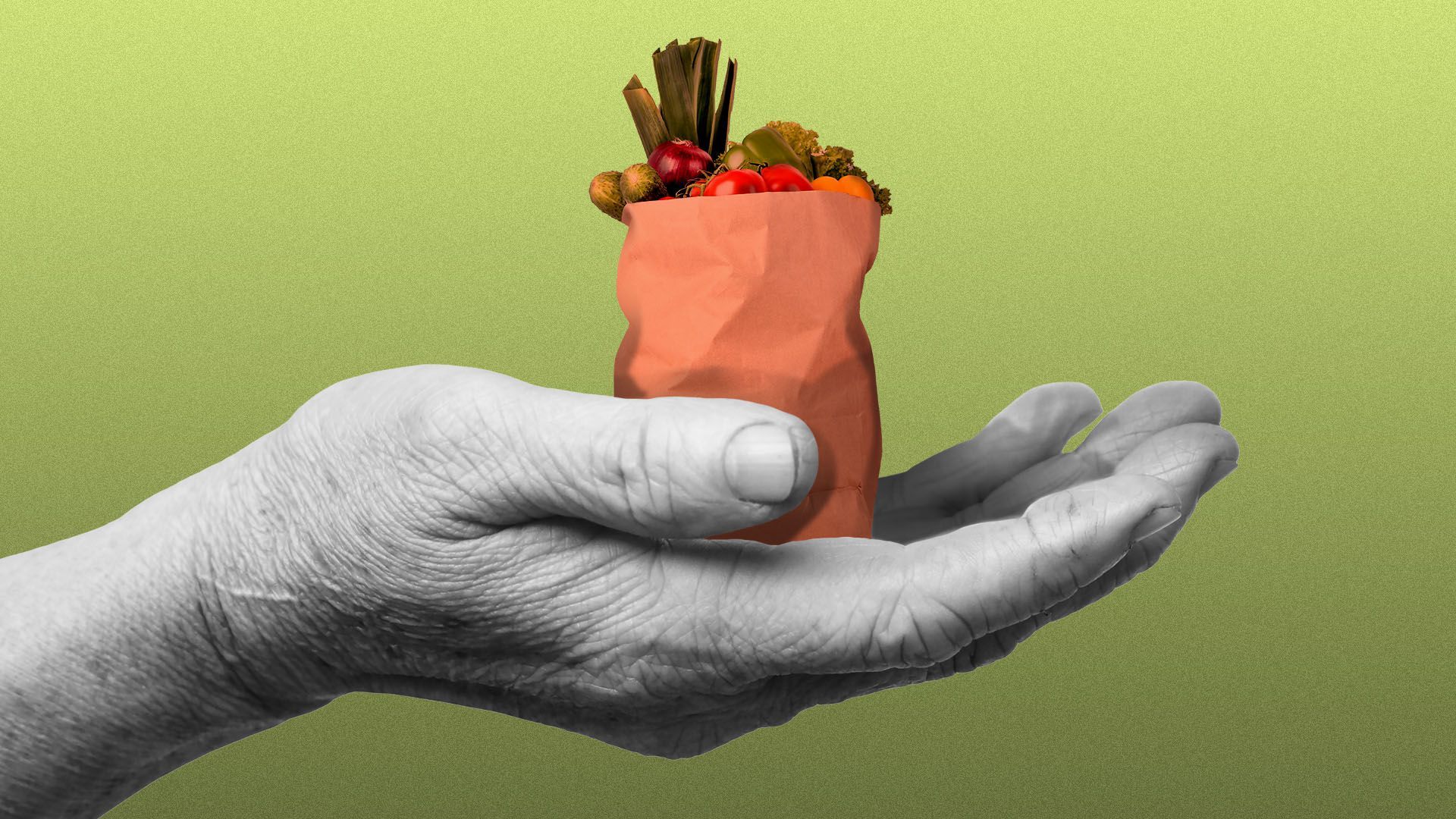Report: Number of grocery stores in Detroit went down
Add Axios as your preferred source to
see more of our stories on Google.

Illustration: Sarah Grillo/Axios
Detroit is down eight grocery stores since 2017.
Why it matters: The food ecosystem lacked stability even before the pandemic. Afterward, members of the food industry donated and delivered meals during lockdowns and federal aid helped bolster efforts to keep families fed.
- However, despite some signs the city is recovering from the pandemic — like a low unemployment rate — access to fresh food has failed to improve in major ways, according to a recent Detroit Food Policy Council report.
By the numbers: Detroit went from 74 full-service grocery stores in 2017 to 66 last year, according to the report.
- In 2017, Detroit was 92% of the way to the goal of having 30,000 square feet of grocery store per 10,000 people.
- That figure has since slid to 84%.
Yes, but: Disruptions in the food system led people to grow their own food, resulting in an uptick in community gardens during the pandemic, according to Amy Kuras, research and policy program manager for the council.
- The number of food-insecure households is down just 1 percent from 70% in 2017.
Between the lines: While Aldi and Meijer have opened stores here recently, including the latter's small-format Rivertown Market a year ago, there are no Kroger locations.
Of note: Entrepreneur Raphael Wright, a health food advocate, is working to open an equity-crowdfunded grocery store concept called Neighborhood Grocery in Jefferson Chalmers.
Flashback: "If you look at a map and don't just look at Detroit, but the inner ring suburbs around it, you'll notice an arc of grocery stores," Josh Elling, chief executive of the nonprofit Jefferson East Inc., tells Axios. "For the past 50-60 years there have been strategic decisions made by grocers that they're not going to locate in the city."
- These nearby locations get to capture Detroiters' dollars without dealing with the higher costs of operating in the city, Elling says. But they don't serve residents without transportation access or time to travel far.
What they're saying: "A lot of these big name brand stores — they feel that they don’t have to cater to a predominantly Black community because we will follow them wherever they go," east side resident Linda Bowie told BridgeDetroit.
